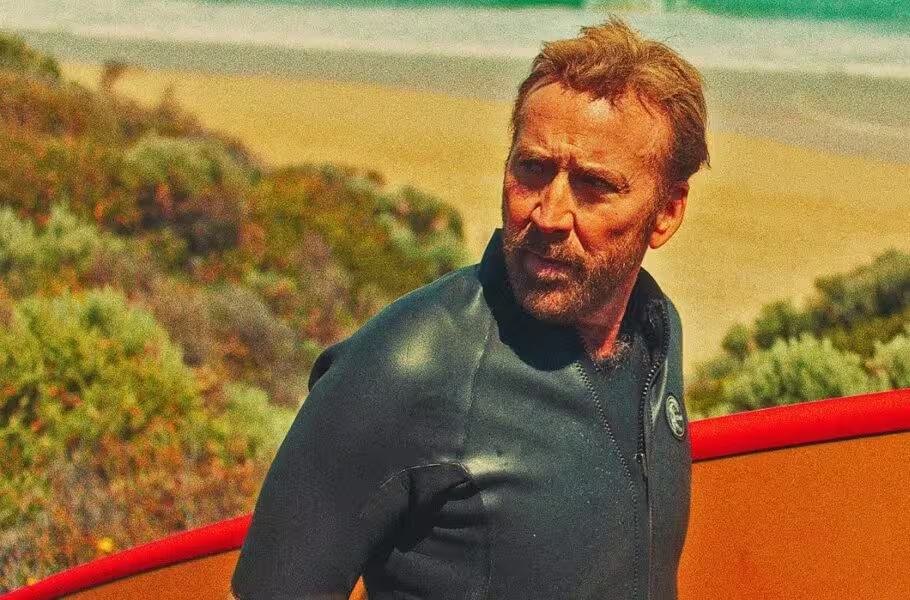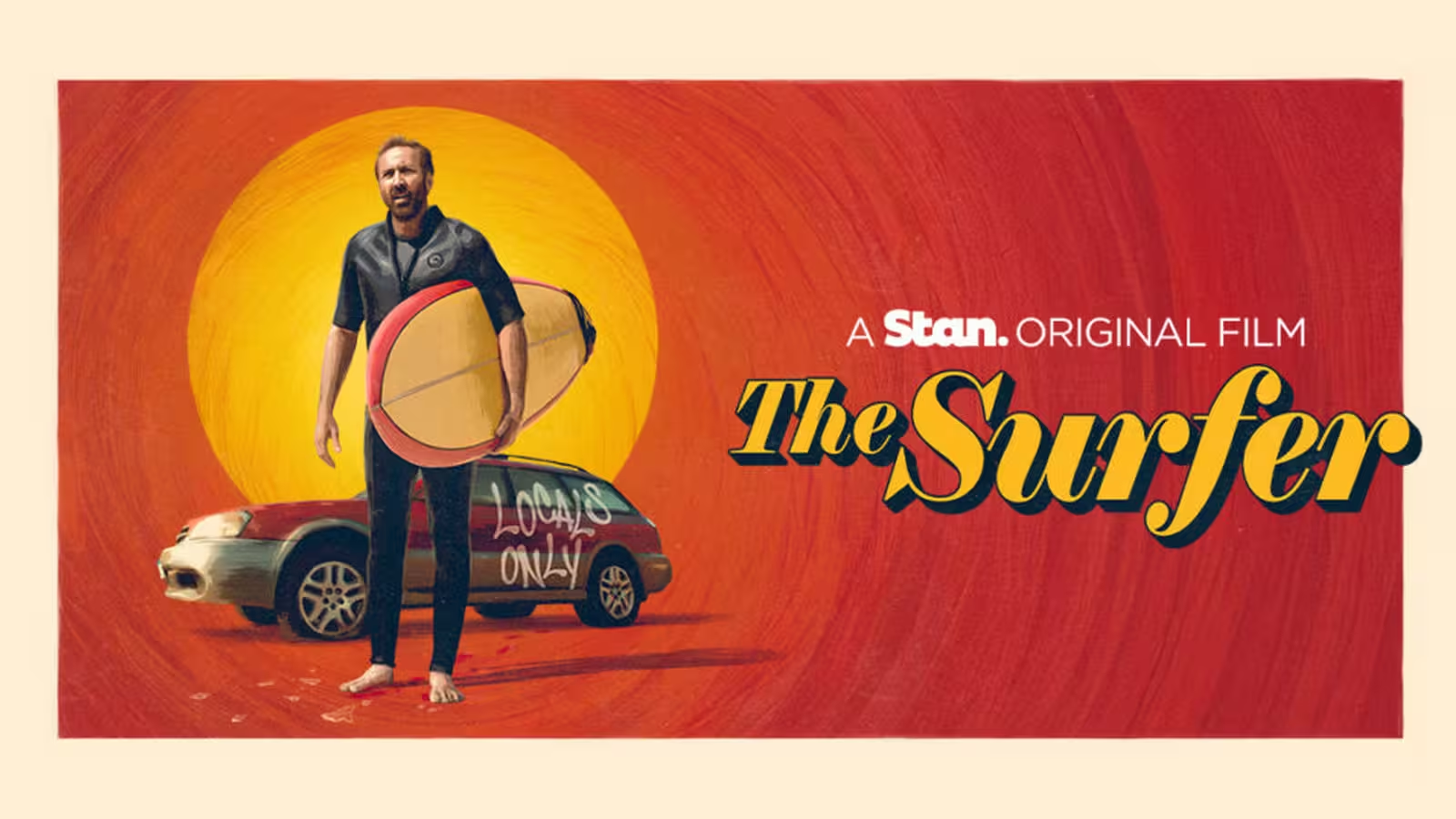8 Minutes
Few films in recent years have captured the clash of modern life’s anxieties and age-old existential quests quite like 'The Surfer'. Directed by Lorcan Finnegan and penned by Thomas Martin, this Australian cinematic gem uses the metaphor of surfing to unravel the complexities of the human spirit, the devastation of broken relationships, and the search for true self amidst the noisy cages of the contemporary world. Join us as we dissect this haunting drama starring the elusive and ever-magnetic Nicolas Cage.
The Surfer: Unraveling the Prison of Modernity
The Human Condition on Screen
Modern existence is often a frantic balancing act—chasing career success, family, personal fulfillment, and societal expectations. Overwhelmed by technology, consumerism, and constant activity, our authentic selves become buried under layers of noise and obligation. 'The Surfer' aims to expose and break apart these invisible cages, inviting viewers to confront the limitations of their own daily routines and rediscover what it means to truly live.
Finnegan’s direction and Martin’s script are an invitation: What if you could break free? What if the path to your truest self lay, not in accumulation, but in release—of possessions, roles, and even the pain stitched into your past?

Plot Summary: Waves of Change and Existential Reckoning
A Broken Man on a Familiar Shore
Our story centers on an unnamed, middle-aged protagonist, portrayed with masterful intensity by Nicolas Cage. He arrives at the windswept Luna Beach in his luxurious Lexus, surfboards in hand, hoping to give his young son a picture-perfect adventure by the ocean—a Christmas holiday to remember. However, beneath this idyllic surface lies a fractured reality. Cage’s character is recently abandoned by his wife, estranged from his son, and hurtling towards a painful divorce.
The family’s dysfunction is immediate; emotionally charged conversations about youth, surfing, and the meaning of life are met with indifference by his son. As father and son attempt to bond through surf, they’re halted by 'The Bay Boys', an aggressive gang led by Scully Callahan who claims the waters as their turf, barring outsiders from enjoying the waves. It’s another blow to the father’s fragile self-worth and a microcosm of his inability to connect and regain something lost—both in his family and within himself.
Surreal Turns and Heightened Stakes
Determined but dispirited, the main character returns to the beach alone, fixated on reclaiming the family’s old seaside home—a symbol of nostalgia, lost youth, and happier times. Yet, as the film unfolds, the pursuit of this home becomes more than just a quest for property; it morphs into a psychological odyssey. A series of increasingly surreal events in the beach parking lot ensnare him in conflict with the Bay Boys, stripping him of his material possessions—his car, heirloom watch, phone, even his suit. The absence of his worldly goods leaves him exposed, vulnerable, and forced to confront the battered spirit that remains beneath the external trappings.
With every setback, the narrative slips further away from reality, blurring the line between dream and waking life—inviting us to question not only the protagonist’s journey but our own definitions of strength, success, and masculinity.

Cast & Crew: The Surfer’s Collaborators
Nicolas Cage delivers a spellbinding performance, proving—once again—his ability to inhabit the souls of broken men desperate for transformation. Cage, also serving as the film’s producer, brings a raw, almost shamanic quality to the role, echoing his earlier declarations that every character deserves its own spiritual identity.
Behind the camera, director Lorcan Finnegan crafts an immersive mood through saturated colors, charged silences, and a pulsating soundscape. Thomas Martin’s screenplay is as lyrical as it is mysterious, resisting easy answers in favor of meditative, open-ended storytelling. The supporting cast, led by characters like Scully Callahan (the menacing local kingpin), lend substance to the film’s masculine, tribal themes, reinforcing the sense of primal challenge and societal outcasting.
Production Details: A Vivid Slice of Australia
Filmed on location along the weather-beaten Australian coast, 'The Surfer' pulsates with the textures of wild nature. The incessant glare, sticky humidity, cries of birds, and subtle background sounds merge to create a palpable sense of both menace and renewal. Cinematography leans heavily on visual symbolism: the ocean embodies freedom and purification, the family home represents longing and restoration, while Cage’s loss of material goods mirrors his inner unraveling.
Sound design plays a pivotal role as well—bird calls sometimes morph into mocking laughter, and the undulating score mirrors the waves’ push and pull against Cage’s battered psyche. The wild beauty of Australia is not just backdrop but an active force, first tormenting then ultimately aiding the protagonist’s renewal.

Symbolism and Deeper Meanings: Beyond the Surface
At its heart, 'The Surfer' is less a film about surfing and more about the spiritual journey toward self-reclamation. Each beat resonates with allegorical undertones: the battle for the beach mirrors inner battles for self-worth; the old house becomes both sanctuary and unattainable ideal.
The film leans into surrealism as it explores these psychological depths. Dreams, memories, and painful flashbacks become indistinguishable from reality, echoing the protagonist’s descent into emotional chaos and eventual rebirth. By losing everything, he glimpses what truly matters—suggesting that tranquility, fulfillment, and connection can only be grasped once ego, possession, and external validation are washed away.
Scully’s Instagram video soliloquy on the weakness of modern wills—comparing lost men to Shaolin disciples forced to endure privation before gaining inner strength—lingers long after the credits. 'The Surfer' posits that, like ancient initiates, one must endure hardship and strip away attachments to emerge renewed and authentic.
Production and Direction: Cinema as Pure Visual Language
Creating a film that operates more through imagery and sound than conventional dialogue or plot, Finnegan’s approach is reminiscent of transcendental cinema. Objects and scenes are drenched in metaphoric meaning: the Lexus symbolizes materialism’s hollow lure, the surfboard redemption, the wild sea both challenge and purification.
Audio techniques further layer meaning—the pitch and quality of bird sounds, humming surf, and skewed music transform into active commentary on the protagonist’s journey. Cinematic grammar, rather than spoken words, does most of the storytelling, making 'The Surfer' a truly cinematic experience in every sense.
Themes: Masculinity, Alienation, and the Quest for Wholeness
Among the many symbol-laden themes, the crisis of masculinity stands out. Interviews with Finnegan highlight this motif: the Bay Boys, tribe-like and territorial, act as gatekeepers of an outdated model of male strength, where physical prowess and dominance overshadow emotional depth or spiritual growth. The absence of meaningful feminine presence further underscores a community hollowed out by competition and disconnected from nurturing energies.
Yet, 'The Surfer' refuses to vilify masculine energy entirely. Instead, it illustrates the perils of letting it manifest only as aggression, and the potential for true strength when channeled into vulnerability, compassion, and self-awareness.

Critical Reception and Audience Response
Since its debut at international film festivals, 'The Surfer' has polarized critics and viewers alike. Arthouse enthusiasts praise its bold visual style and philosophical ambitions, while others—particularly those expecting a straightforward surfing drama or traditional narrative structure—find it opaque or alienating.
Nicolas Cage’s performance, however, is universally lauded. His portrayal is unguarded, feverish, occasionally wild, and always compelling—a reminder of why he remains a fixture in both indie and mainstream cinema.
Personal Impressions: A Wave Worth Catching
To watch 'The Surfer' is to surrender expectations and ride its currents of intensity, ambiguity, and revelation. It is not a film for passive consumption. Like the waves it so reverently depicts, its reward is experiential: you absorb it, you reflect on it, and, if you’re patient, you may find your own spirit quietly altered by the journey.
Perhaps 'The Surfer' won’t please everyone. Its slow-burn pacing, reliance on symbolism, and unconventional narrative structure demand patience and an openness to subtlety—all qualities increasingly rare in an age dominated by blockbuster thrills. Yet, for those yearning for cinema that challenges and transforms, this film stands apart—one to be experienced multiple times, with each viewing yielding fresh insights and emotional resonance.
Final Verdict: The Surfer’s Lasting Legacy
In the end, 'The Surfer' is less about watching a story unfold and more about encountering a reflection of your own internal storms and the quiet hope that renewal is possible. Nicolas Cage delivers a performance for the ages—enduring, raw, and ultimately redemptive. Lorcan Finnegan’s visionary direction and Thomas Martin’s layered script ensure this film’s place among the year’s most thought-provoking releases.
Let the waves crash. Let the storms rage. In surrendering to the unknown, we may just rediscover the power and serenity that lie patiently within us all.
For fans of artistic cinema, existential storytelling, and the ever-fascinating Nicolas Cage, 'The Surfer' promises a cinematic journey that’s sure to linger long after the credits roll.



Comments